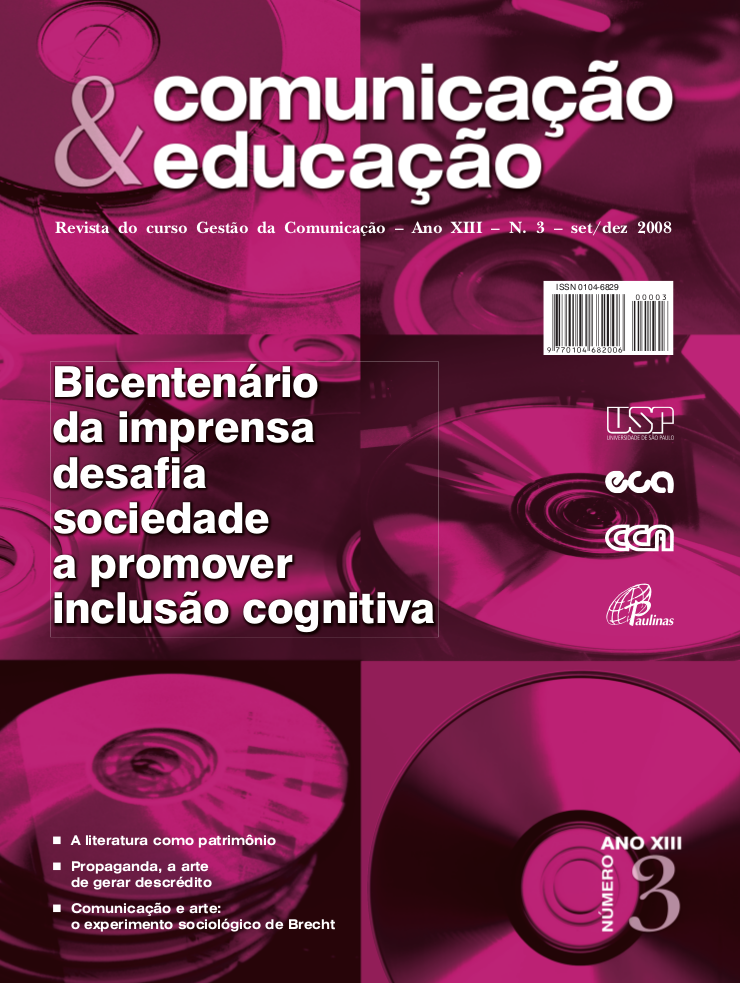Freedom, identity and creativity in Uruguayan Popular Music
DOI:
https://doi.org/10.11606/issn.2316-9125.v13i3p61-79Keywords:
censorship, History, music, popular singing, cultureAbstract
The author tackles dictatorial period in Uruguay (1973-1985) and shows how censorship did not manage to stop thecoming out of numerous poets and artists who, following the precursor way of the Uruguayan poet Bartolomé Hidalgo (1788-
1822), registered the historical and cultural processes that happened in Uruguay. Under extremely severe conditions, the creative freedom of most musitians made itself present as a political commitment to counterbalance one of the worst dictatorships in Latin America, that, almost in unison, also
happened in Argentina, Brazil, Chile and Paraguay. She highlights two exponents that, in her understading, synthesize the highest exercise of creative freedom in the second half of the 20th century: Alfredo Zitarrosa and Eduardo Mateo.
Downloads
Downloads
Published
Issue
Section
License
I authorize the publication of the submitted article and soon the copyrights to the magazine, in the printed and electronic version, if it is approved after the evaluation of the reviewers.
I understand that readers may use this article without prior request, provided the source and authorship are mentioned. Readers are not authorized to use this article for reproduction, in whole or in part, for commercial purposes.

































